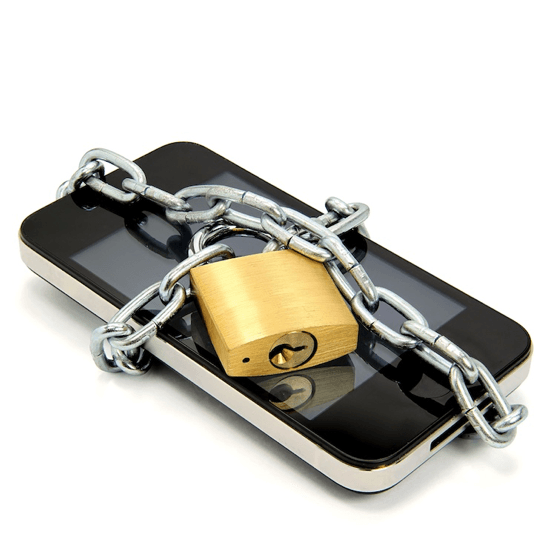By John Montgomery
As the mobile phone became a ubiquitous tool in modern life, the judicial branch was asked to rule on how long law-enforcement officers could extend the seizure of an arrestee’s mobile phone before applying for a search warrant, without violating the arrestee’s Fourth Amendment protection against unreasonable seizures. After Riley v. California (2014), law-enforcement officers did not have the right to search an arrestee’s mobile phone without a warrant, even with probable cause. Prior to Riley, lower courts were in conflict as to how, if at all, the Chimel rule, derived from the Court’s holding in Chimel v. California (1969) that the arresting officers could search the body of the arrestee and the immediate area around the arrestee to protect the integrity of any evidence present and to ensure law enforcement officer safety, applied to mobile phones.
In United States v. Pratt (2019), the Fourth Circuit Court of Appeals considered Pratt’s appeal, which argued that his conviction for sex trafficking and child pornography should be vacated because the length of time the government waited to apply for a search warrant after seizing his phone amounted to an unreasonable seizure and violated his Fourth Amendment rights. FBI agents conducted a sting operation, responding to a post on Backpage.com by Pratt, and subsequently sending an undercover agent on a “date” with the juvenile described in Pratt’s post. The juvenile cooperated with the undercover officer and disclosed that she sent explicit pictures of herself to Pratt’s mobile phone. The FBI agents asked Pratt whether he had explicit pictures of the juvenile on his phone. Pratt admitted that yes, he did have explicit pictures of the juvenile on his phone, but he refused to consent to a search and seizure of the phone, and he refused to disclose the pin number to unlock the phone. Law enforcement officers arrested Pratt and seized his phone on February 3, 2016, but did not apply for a warrant to search it until March 4, 2016. After obtaining the warrant, law enforcement officers found child pornography and other incriminating evidence on Pratt’s phone and introduced it at trial to help convict Pratt.
On appeal, Pratt did not argue that the seizure of the phone was unconstitutional, but rather that the 31 days between seizure and warrant application amounted to an unreasonable delay. The Fourth Circuit weighed the government’s evidentiary interest against Pratt’s possessory interest. A legitimate government interest justified an extended seizure in United States v. Van Leeuwen (1970), where a package was detained for almost 30 hours while law enforcement officers obtained a warrant, and in Illinois v. McArthur (1985), where a drug smuggler was detained for 16 hours until a warrant was obtained. More recently, in United States v. Mitchell (2009), the Eleventh Circuit determined that 21 days was too long to wait to obtain a warrant for an arrestee’s seized computer, despite the law enforcement officer’s contention that he was unable to apply for the warrant because he was out of town on a training assignment. However, the Eleventh Circuit permitted delays of 45 days and 25 days in cases similar to Mitchell where the arrestee had a diminished privacy interest and the assigned law enforcement agencies were working with depleted resources. In Pratt, the government’s explanation for the 31-day delay was that an apparently lengthy debate occurred on where to apply for the warrant, and additional time was lost coordinating among multiple agencies. In a unanimous decision, the Fourth Circuit panel ruled that the government failed to justify the delay in obtaining a search warrant for Pratt’s phone and that the FBI agents failed to exercise due diligence. Pratt’s convictions on the counts that relied on evidence seized from his phone were vacated and remanded to the district court.
The Fourth Circuit appears to have successfully threaded the proverbial needle in finding that absent a reasonable justification, 31 days is simply too long for law enforcement officers to possess an arrestee’s phone prior to obtaining a search warrant for it. In the future, perhaps the United States Supreme Court will take a similar case and offer a more precise rule. For now, the Fourth and Eleventh Circuits’ cogent analysis of the aforementioned cases offers other law enforcement agencies a helpful primer on the circumstances can legitimately justify a delay in the application for a search warrant of a seized item, and the length of delay that can be justified.
Student Bio: John Montgomery is a second-year student at Suffolk University Law School and a staff member of the Journal of High Technology Law. He holds a Bachelor of Science degree in Crime, Law, and Justice from Pennsylvania State University, a Master of Arts degree in Criminology from John Jay College of Criminal Justice, and a Master of Public Policy degree from Northeastern University.
Disclaimer: The views expressed in this blog are the views of the author alone and do not represent the views of JHTL or Suffolk University Law School.

